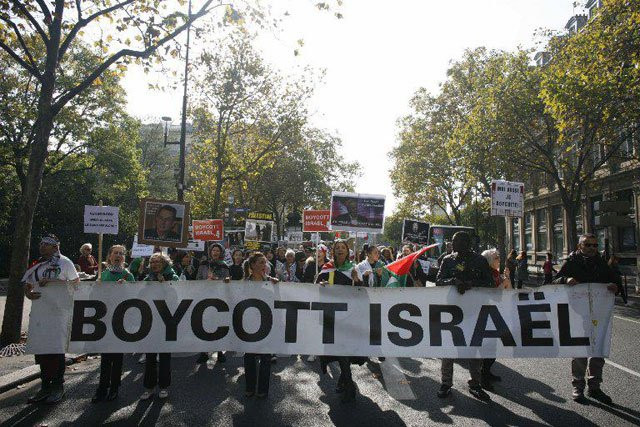Stuck in controversy : Local businesses anticipate losses
Propaganda campaign against imported products is negatively impacting our own economy, not Israel’s

For a nation which deems the purchase of imported items a key marker of affluence and success, the sprawling of various local stores and online businesses selling items from across the globe is only a natural occurrence, however as the country dissolves in a propaganda campaign against Israel linked products in the aftermath of the Gaza war, stores selling gadgets displaying bitten apples or cosmetics with indecipherable languages, are left in an unusual quandary.
Following Israel’s atrocious genocide in Gaza, a natural inclination towards protecting Palestine’s right to freedom and guarding human rights, led to the unfolding of a massive social media campaign across Muslim countries in the world against multinational supply chains and almost two dozen imported items which had any link to Israel backing countries like the USA, France, Denmark and Norway, in the hopes of reducing their sales and jeopardizing their economies.
However, the ban comes as an unanticipated blow for small businesses struggling for survival in Pakistan’s ailing economy, which had already purchased large stocks of the boycotted items in line with the market demand before the Gaza war but are now facing losses, resulting in an undesirable situation where our weakened economy is bearing the brunt of the ban instead of the boycotted superpowers.
For instance, Zainab Asif, a businesswoman from Lahore runs a general store and an online e-store selling imported products including toiletries, cosmetics, and a variety of snacks. “I had already purchased a large stock of imported items from USA, France, Denmark, and Norway before the Gaza war. While previously there was a great nationwide demand for my products, now people refuse to shop those same items reducing their sales by 30 to 35 percent. In case, these items worth millions of rupees, are left to expire on the shelves, we will suffer huge losses and our own local economy will be harmed,” claimed Zainab.
Read Iran's Khamenei urges Muslim countries to boycott Israel
“While traders who have bought foreign goods from local dealers can return them, businesses who have already imported large stocks from abroad may suffer losses,” confirmed Dr Qais Aslam, an economist.
On the other hand, boycotters believe that if they cannot directly help the Palestinians, they can contribute to their cause by boycotting items linked with Israel and the USA.
As Zainab Arshad, a female consumer from Lahore, said, “If we cannot stop the Israeli atrocities and the bombing of innocent Palestinians, we can at least cause financial damage to them by boycotting their products.”
Another citizen, Hafiz Waseem Ahmed, said, “The campaign to boycott Israeli products is going on successfully. If the people of all Muslim countries unite and boycott Israeli products, Israel’s economy can be destabilized in a few weeks.”
Dr Qais Aslam however, voiced his skepticism about the veracity of the campaign which is based entirely on inflicting monetary harm on Israel and its accomplice nations. “A very small percentage of the profit earned by multi-national companies goes in the pockets of Israeli’s and American’s while Pakistan has no direct trade links with Israel to begin with,” differed Dr Alam, who still felt that the ban could yield positive effects on the local economy if it led to the promotion of local products.
Speaking to The Express Tribune on the matter, Hafiz Tahir Mahmood Ashrafi, Special Assistant to the Prime Minister and Head of Pakistan Ulama Council said, “I would urge people to purchase local products in order to benefit our own economy and support the Palestine cause.”
Published in The Express Tribune, December 25th, 2023



















COMMENTS
Comments are moderated and generally will be posted if they are on-topic and not abusive.
For more information, please see our Comments FAQ